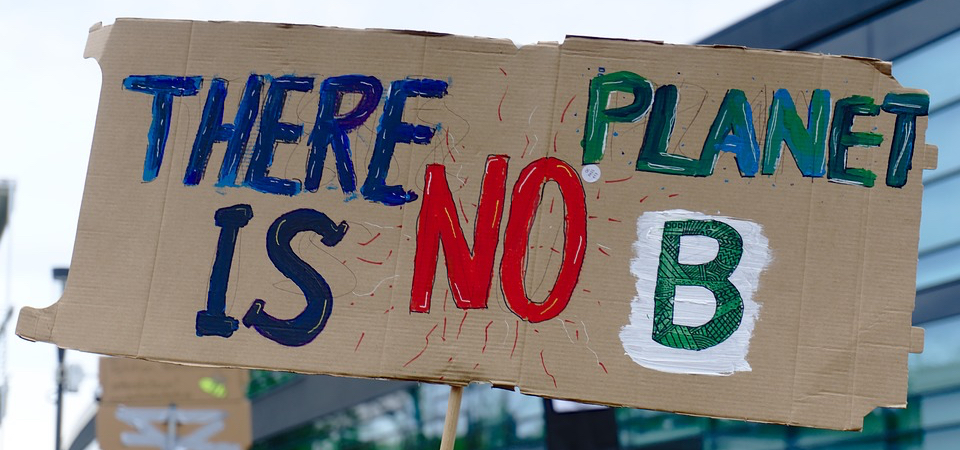‘Basically nothing is being done to halt — or even slow — climate and ecological breakdown, despite all the beautiful words and promises’. Greta Thunberg’s damning speech before the UK parliament last month highlights that the greatest challenge to international climate agreements is inaction by governments. The Swedish climate activist’s central message was: ‘You did not act in time’.
The norms within the Paris Agreement on climate change are challenged not just by climate change deniers and other open critics. Perhaps more dangerously, as Thunberg pointed out, they are also contested by states like the UK that pay lip-service to the agreement but fail to reach their emissions reduction targets. To capture these diverse forms of norm contestation, a collection of articles on ‘The dynamics of dissent’ in the May issue of International Affairs makes a distinction between discursive and behavioural contestation.
Norms are contested when relevant political actors are involved in social practices that entail different understandings of the norms or their weight relative to competing norms. Discursive contestation involves debates about the meaning and/or (relative) importance of norms. Behavioural contestation, by contrast, occurs when different norm understandings become apparent in the diverging ways in which actors implement norms. These range from inaction, ineffective implementation, and acts of sabotage, to going beyond the call of duty.
Despite being a powerful mechanism of challenging and changing norms, behavioural contestation has largely fallen outside the purview of existing studies of norm contestation, in part because it often goes unnoticed.
Since the 1992 Kyoto Protocol signatories to UN climate agreements have reaped the benefits of apparent norm-compliance but failed to reduce emissions in line with the target of limiting global warming to 1.5° Celsius. Such behavioural contestation can allow states to ‘have their cake and eat it, too’; that is, maintaining a good reputation despite avoiding their obligations. Unsurprisingly then, behavioural contestation is a strategic tool frequently employed by decision-makers. The failure of states to effectively implement the Women, Peace and Security agenda, the US covering-up practices of torture in Iraq and China obstructing on-the-ground inspections by the WHO during the SARS crisis provide further examples.
In our recent International Affairs article, we explain what influences the choice of states and non-state actors (such as activists or NGOs) to engage in discursive or behavioural contestation. This choice can be more or less constrained depending on what kind of actor you are and on what type of norm you are facing.
For non-state actors, access to behavioural contestation is severely limited. After all, international norms are mostly directed at and implemented by states. Behavioural contestation by non-state actors thus relies primarily on either making symbolic contributions or on interfering with states’ implementation actions. Greta Thunberg engages in (symbolic) behavioural contestation by adopting a vegan diet and not flying. The Fridays for Futureschool strikes attempt to influence policy-makers by combining discursive contestation with the offer of a bargain: ‘I assure you we will go back to school the moment you start listening to science and give us a future’. An example of more direct interference with government actions is given by another Swedish student, Elin Ersson, whose refusal to take a seat on a plane stopped Sweden from deporting a man to Afghanistan.
While these cases illustrate that behavioural contestation of non-state actors is possible, discursive contestation remains the primary choice for most non-state actors. If and when they use behavioural contestation, it tends to be as a complement that underscores the force of arguments made at the discursive level.
Yet states also face constraints in their contestation options. These constraints derive in part from how deeply and widely accepted a norm is. Given overwhelming scientific evidence, civil society pressure and a comparatively strong international consensus, discursive contestation of climate change norms is simply not an option for many states (with the unfortunate exception of the US). Under such conditions, states find that silent inaction is easier than debating the viability of norms.
In our article, we show that discursive and behavioural contestation are not independent of one another but often happen sequentially or at the same time. By calling out deviant practices discursively, NGOs and activists like Thunberg make non-compliance visible and put states under pressure to change their behaviour. Once behavioural contestation becomes visible, states can choose to deny, defend or pledge to adjust their (in)action. In response to the climate protests, the UK parliament chose this last option. As one observer stated, ‘Not many people can … expect cheers and a standing ovation from those they have just publicly criticised. Yet this was the reception 16-year-old Greta Thunberg received when she addressed MPs and journalists in Westminster.’
If behavioural contestation by states remains below the radar for a long time, it can undermine a previously existing normative consensus and deal a fatal blow to a norm. Therefore, activists play a crucial role in making behavioural contestation visible. Ultimately, however, the success of the Fridays for Futuremovement will be measured not the number of renewed pledges, but by the actions taken by the UK and other countries to reduce emissions and truly combat climate change. As our ‘Dynamics of dissent’ project stresses, we must take behavioural contestation and its implications seriously. Sometimes, actions are louder than words.
This post was originally published on the International Affairs Blog.
Lea Wisken and Anette Stimmer edited a special section in the May 2019 issue of International Affairs, titled ‘The dynamics of dissent’. Read the articles here.








